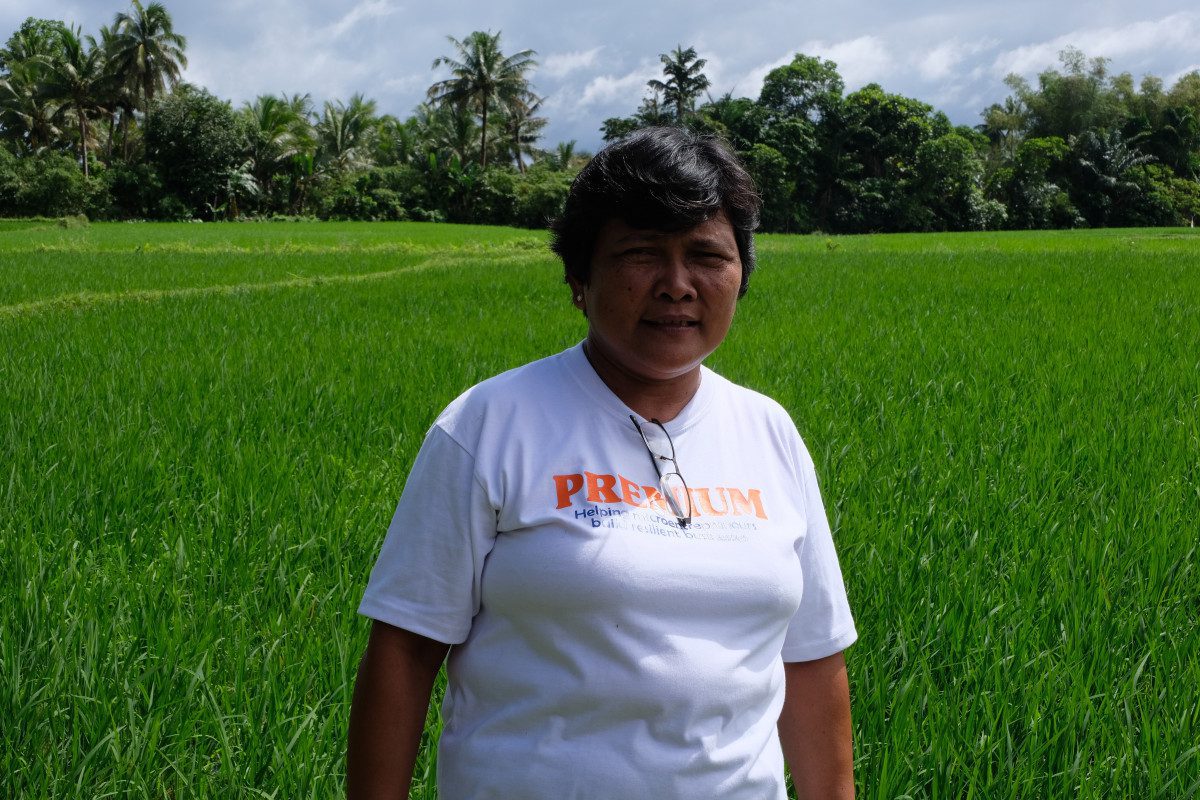Benilda “Kap Bening” Madronero proudly shows off her richly verdant rice paddy in the municipality of Carigara on the island of Leyte in the Philippines. The glittering green stalks seem to extend all the way into the horizon. Up until just a few years ago, Benilda wasn’t farming this land because she didn’t even know that it belonged to her.


Like many small-scale farmers in the Philippines, Benilda was eligible to benefit from the Comprehensive Agrarian Reform Program (CARP), which was launched in the 1980s to redistribute land equitably to those who actually farm it, but was never made aware of this fact.
Following Super Typhoon Haiyan in November 2013, which devastated much of the island of Leyte, including farmland, Development and Peace – Caritas Canada and the Manitoba Council for International Cooperation, supported the local organization RIGHTS (Rural Poor Institute for Land and Human Rights Services) in helping small-scale farmers relaunch their agricultural production.
Many in the remote rural areas of Leyte were excluded from accessing humanitarian assistance, such as seeds and materials to repair their homes since they did not have formal, documented property rights. Thankfully, the project supported not only agricultural aid, but funds to address the issues that made rural farmers so vulnerable in the first place. With its years of experience advocating for access to land, RIGHTS organized the local farmers and helped them call on the government to respect their land rights. As a result of the project, 3,500 farmers received their rightful land titles, 48% of whom are women farmers.
Mitigating the impacts of COVID
Having a secure piece of land to farm healthy, organic and sustainable crops has meant that communities that participated in the project have been able to better cope with the threat of food insecurity brought on by COVID-19. The Philippines has had some of the harshest lockdown measures in the world, which has meant a loss of income for many, making food increasingly inaccessible.
For farmers in Carigara, like Benilda, they have been able to provide sustenance for their families through their own crops. Over time, they have diversified their crops and have started to raise livestock, which has also increased their capacity to make a livelihood. With the onset of COVID-19, some farmers have even intensified their production to help neighbouring communities not faring as well.


Thanks to its COVID-19 Solidarity Fund, Development and Peace is now providing the community with additional funding to rehabilitate the local rice mill, which will improve the quality of the rice and make it easier to sell. In fact, the farmers in Carigara will sell some of their rice production wholesale to homeowners in the Pope Francis Village, a community-driven project supported by Development and Peace to help poor coastal communities resettle close to their home city of Tacloban. The sale of the rice will foster a local supply chain that will provide affordable rice to urban consumers while ensuring a stable local market for the farmers.
With your help we can continue to support communities in strengthening their resilience and building justice in the face of the COVID-19 crisis. Donate now!

